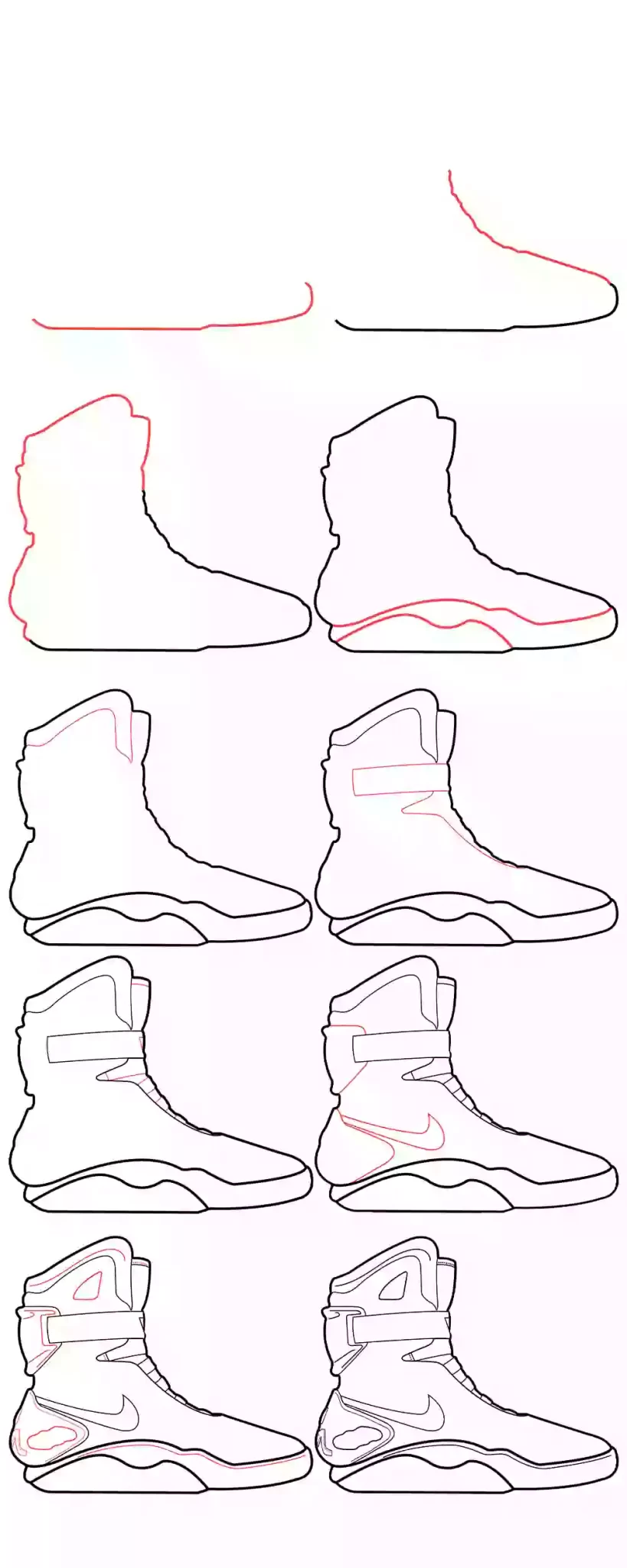Summarize this Article with:
From Academia to Politics: The Peter Navarro Biography

In the intricate world of economics and politics, one name that has consistently made headlines is Peter Navarro. A distinguished figure known for his profound impact on both academic discourse and national policies, Peter Navarro’s journey is nothing short of remarkable. This article unveils the life, career, and contributions of this influential personality, shedding light on the pivotal role he has played in shaping economic narratives.
Peter Navarro’s career trajectory traverses the realms of academia and policy making, making him a multifaceted figure worthy of exploration. As a renowned economist, author, and former Director of the White House National Trade Council under the Trump administration, Navarro’s influence spans across sectors that significantly impact the global landscape.
In the following pages, we delve into the early life and academic roots of Peter Navarro, tracing his intellectual journey that laid the foundation for his impactful career. We will navigate through his scholarly endeavors and highlight his contributions as an author, simplifying intricate economic concepts for a wider audience.
Moreover, this article scrutinizes Peter Navarro’s pivotal role during his tenure in the Trump administration, especially in the domain of international trade. It discusses the controversies and debates that often surrounded his trade policies, reflecting the complexities of global economic relations.
As we unravel the narrative of Peter Navarro’s life and work, we will gain a deeper understanding of the indelible mark he has left on the world of economics and politics, reinforcing his position as a prominent and influential figure in these spheres.
Personal and Professional Details
| Category | Details |
| Full Name | Peter Kent Navarro |
| Date of Birth | 15-Jul-49 |
| Place of Birth | Cambridge, Massachusetts, United States |
| Nationality | American |
| Education | Ph.D. in Economics from Harvard University |
| Academic Position | Professor Emeritus of Economics and Public Policy at the University of California, Irvine |
| Career | Economist, Author, Political Advisor |
| Notable Works | “The Coming China Wars,” “Death by China” |
| Political Affiliation | Republican |
| White House Role | Director of the White House National Trade Council during the Trump administration |
| Trade Policies | Known for advocating tough trade policies, especially regarding China |
| Legacy | Significant influence on U.S. trade policies and economics |
Early Life and Academic Beginnings
Peter Navarro, born on July 15, 1949, in Cambridge, Massachusetts, began his journey towards becoming a prominent economist in this historic city. Growing up, Navarro displayed an early aptitude for academics and an innate curiosity about the world around him.
Navarro’s academic journey commenced at Tufts University, where he pursued a Bachelor of Arts in Economics and a Bachelor of Science in Electrical Engineering. This multidisciplinary approach, blending economics with engineering, laid the groundwork for his future endeavors, instilling in him a unique perspective on problem-solving and analysis.
Upon completing his undergraduate studies, Navarro embarked on a rigorous academic pursuit. He earned a Master of Public Administration from the Kennedy School of Government at Harvard University, deepening his understanding of public policy and its intricate intersections with economics.
However, Navarro’s thirst for knowledge and his determination to delve further into the complexities of economics led him to the esteemed Harvard University once again, where he pursued a Ph.D. in Economics. Here, he sharpened his analytical skills, honed his economic theories, and further developed his passion for international trade.
Navarro’s academic achievements didn’t go unnoticed. His dedication to his studies, coupled with his unique interdisciplinary background, set him apart. He was soon recognized as a promising economist, and his research contributions began to garner attention.
Throughout his academic journey, Navarro’s interest in international trade grew exponentially. His deep dive into this field would later become a defining aspect of his career. As he ventured into the world of academia, little did he know that his research and expertise in international trade would not only shape his career but also influence national economic policies in the years to come.
A Scholar and Author

Peter Navarro’s journey through academia was marked by rigorous research and a commitment to making economics accessible to a wider audience. As a scholar, he made significant contributions to the field of economics, particularly in the realm of international trade.
One of Navarro’s hallmark attributes as a scholar is his ability to simplify intricate economic issues. He possesses the rare talent of distilling complex economic theories and policies into comprehensible concepts, making them accessible to policymakers and the general public alike. This talent became particularly evident in his role as a prolific author.
Among his notable works, “The Coming China Wars” and “Death by China” stand out. These books delved into the multifaceted economic relationship between the United States and China, addressing issues such as trade imbalances, intellectual property theft, and the impacts on American manufacturing. Navarro’s writing style, characterized by clarity and directness, allowed readers to grasp the nuances of these complex topics.
Navarro’s books did more than inform; they spurred discussions and influenced public opinion on critical economic matters. “Death by China,” in particular, caught the attention of policymakers and the media, shaping the discourse on U.S.-China trade relations.
Beyond books, Navarro’s academic research added depth to his scholarly profile. His papers and studies contributed valuable insights into areas like energy economics, healthcare economics, and the economic implications of climate change. His interdisciplinary approach, rooted in both economics and public policy, allowed him to explore a wide range of subjects, demonstrating the breadth of his expertise.
Navarro’s career trajectory reveals not only his commitment to academic excellence but also his dedication to advancing economic knowledge in a way that resonates with a broader audience. His ability to bridge the gap between academia and the public sphere has made him a significant figure in the field of economics and policy.
Navarro in the Trump Administration
Peter Navarro’s role as the Director of the White House National Trade Council marked a pivotal moment in his career and had far-reaching implications for U.S. trade policies, particularly in relation to China. In this role, Navarro played a central part in shaping the Trump administration’s approach to international trade.
Navarro’s influence within the Trump administration was substantial, primarily due to his unyielding stance on China. His belief in the need to rectify what he saw as longstanding trade imbalances between the United States and China was a driving force behind many of the administration’s trade policies.
One of the most significant impacts of Navarro’s role was the initiation of a trade war with China. He advocated for tariffs on Chinese imports, asserting that they were necessary to protect American industries and jobs.
This aggressive stance resulted in a series of tariffs and counter-tariffs between the two nations, causing economic tensions on a global scale. While proponents argued that such measures were vital to addressing unfair trade practices, critics raised concerns about the potential for negative consequences, including disruptions to global supply chains and retaliatory actions.
Navarro’s policies also extended to other countries and regions, emphasizing a more protectionist approach to trade. He played a key role in renegotiating trade deals, such as the United States-Mexico-Canada Agreement (USMCA), with a focus on securing terms that were perceived as more advantageous to American interests.
However, Navarro’s tenure was not without controversy. His uncompromising views and aggressive trade policies drew criticism from various quarters, including business leaders, economists, and some policymakers. Critics argued that the trade war with China had adverse effects on American businesses and consumers, and they questioned the long-term viability of such an approach.
The debates surrounding Navarro’s policies highlighted the complexities of international trade and the differing viewpoints on how to address trade imbalances. Regardless of one’s perspective, there is no denying that Peter Navarro’s role in the Trump administration left an indelible mark on U.S. trade policy, setting the stage for ongoing discussions and negotiations in the realm of international trade.
Legacy and Influence
Peter Navarro’s legacy in economics and politics is marked by his significant influence on trade discussions and policies, particularly during his tenure in the Trump administration. His unapologetic stance on trade issues left a lasting impact that continues to shape debates on international trade and economic relations.
Navarro’s influence can be seen in several key areas:
Trade Policy Paradigm Shift: Navarro’s advocacy for a more protectionist approach to trade marked a significant departure from the traditional stance of globalization and free trade. His emphasis on addressing trade imbalances and protecting American industries resonated with a segment of the population that felt left behind by globalization.
China-U.S. Relations: Perhaps the most prominent aspect of Navarro’s influence is his role in shaping U.S.-China relations. He pushed for a tougher stance on China’s trade practices, advocating for tariffs and other punitive measures. While this approach was contentious, it succeeded in bringing longstanding issues to the forefront of discussions and led to a reevaluation of the U.S.-China economic relationship.
Ongoing Trade Debates: Navarro’s tenure continues to fuel debates about the merits and drawbacks of protectionism in trade policy. His strategies and the outcomes of his policies remain topics of discussion, with proponents highlighting the protection of American industries and critics emphasizing potential economic costs.
Policy Considerations: The impact of Navarro’s policies, such as tariffs on steel and aluminum, continues to be felt by businesses and industries affected by these measures. The long-term consequences of these policies, including their effect on domestic manufacturing and global supply chains, are subjects of ongoing analysis and debate.
Role in Academia: Beyond his government service, Navarro’s work as a scholar and author has left a mark on the field of economics. His books and research remain sources for those interested in trade policy and the intersection of economics and politics.
Peter Navarro’s legacy is one of disruption and change in the realm of international trade. His influence is evident in the transformation of U.S. trade policies, particularly in relation to China, and the broader reconsideration of globalization and free trade. While opinions on the merits of his approach vary widely, there is no denying that Navarro’s impact on the trade landscape continues to be a subject of significant interest and discussion in both economic and political circles.
What was Navarro convicted of?
Peter Navarro has not been convicted of any criminal offense. It’s important to clarify that Navarro is a prominent economist and political figure known for his role in advising former President Donald Trump on trade policy and his academic work in the field of economics. While he has been a polarizing figure due to his controversial trade policy recommendations and positions, he has not faced any criminal convictions or legal issues related to criminal activities.
Navarro’s career has been primarily focused on economics, international trade, and politics. He has served in various advisory roles within the U.S. government, notably as the Director of the White House National Trade Council under the Trump administration. During his tenure, he played a key role in shaping the administration’s trade policies, which included taking a tough stance on trade relations with China.
While Navarro’s policy positions and actions have generated significant debate and criticism, they have not led to any criminal convictions. It’s essential to rely on accurate and verified information when discussing individuals’ legal matters, and in the case of Peter Navarro, there is no record of criminal convictions associated with his name.
Conclusion
Peter Navarro’s remarkable journey from academia to politics has left an indelible mark on the landscape of economics and politics in the United States. His academic achievements, particularly in the field of economics, have established him as a respected scholar and author. Navarro’s ability to dissect complex economic issues and present them in an accessible manner has made his work influential and insightful.
However, it is his role as the Director of the White House National Trade Council during the Trump administration that brought him to the forefront of American politics. In this capacity, he played a pivotal role in shaping trade policies, with a particular focus on the United States’ trade relations with China. His positions were often controversial and sparked intense debates, reflecting the depth of his impact on trade discussions.
While opinions about Peter Navarro may vary, there is no denying his significance in the realm of economics and politics. His ability to bridge the gap between academia and real-world policy-making has made him a unique and influential figure. Whether one views his policies as visionary or divisive, Navarro’s contributions have undeniably left a lasting impression on the economic landscape of the United States.
In navigating the complex terrain of international trade and economics, Peter Navarro’s journey serves as a testament to the power of ideas and their potential to shape the course of a nation’s policies and economic future.
Hey kids, how much did you like From Academia to Politics: The Peter Navarro Biography? Please share your view in the comment box. Also, please share this story with your friends on social media so they can also enjoy it, and for more such biography, please bookmark storiespub.com.
Suggested Biography –
Peter Navarro FAQs
Who is Peter Navarro?
Peter Navarro is an American economist, author, and former White House official who served as the Director of the White House National Trade Council during the Trump administration.
What are Peter Navarro's academic credentials?
Navarro holds a Ph.D. in economics from Harvard University and is a professor emeritus of economics and public policy at the University of California, Irvine.
What is Peter Navarro known for?
He is known for his expertise in trade policy and economics and has authored several books, including "The Coming China Wars" and "Death by China."
What was Peter Navarro's role in the Trump administration?
He served as an economic advisor to President Donald Trump and played a key role in shaping the administration's trade policies, particularly in relation to China.
What controversies surrounded Peter Navarro's trade policies?
Navarro's trade policies, especially those aimed at China, were often met with controversy and debates. Critics argued that they could have far-reaching economic consequences.
Has Peter Navarro faced legal issues?
As of my last knowledge update in September 2021, there were no widely reported legal issues or convictions involving Peter Navarro. Please verify with the latest news sources for any updates.
What is Peter Navarro's legacy in economics and politics?
Peter Navarro's legacy includes his impact on trade discussions and policies in the United States. His ability to bridge academia and politics has made him a significant figure in both fields.














